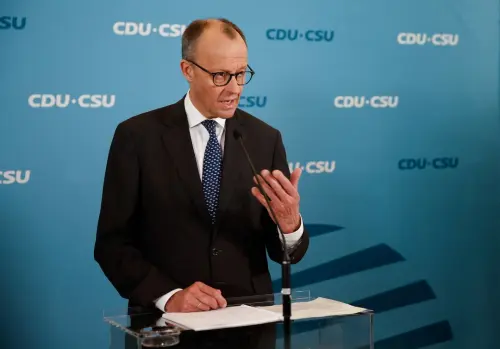German Chancellor designate Friedrich Merz struck a deal with the Greens on Friday for a significant increase in state borrowing just before an upcoming parliamentary vote next week.
The agreement aims to secure the approval of the package in Germany's lower house of parliament on Tuesday and in the upper house on Friday.
Key points to note include the allocation of 100 billion euros from the promised 500 billion euros infrastructure fund over 12 years to a climate and economic transformation fund, as per the Greens' request. The remaining funds are designated for further infrastructure investments, with 300 billion euros for the federal government and 100 billion euros for state governments.
In addition to the infrastructure fund, German states will now be permitted to run a small structural deficit of 0.35% of GDP, mirroring the federal government's allowance, providing them with an extra 16 billion euros in spending capacity. Previously, states were barred from incurring any debt.
A revision to the country's "debt brake," which restricts public borrowing to 0.35% of GDP, will exempt defense expenses exceeding 1% of GDP from the debt restriction. This broader definition of defense spending encompasses civil protection, intelligence, and "aid to countries under illegal attack."
Germany plans to offer Ukraine 3 billion euros in military assistance in response to Russia's invasion, pending approval from the upper house of parliament in the upcoming vote.
(Note: $1 = 0.9179 euros)
